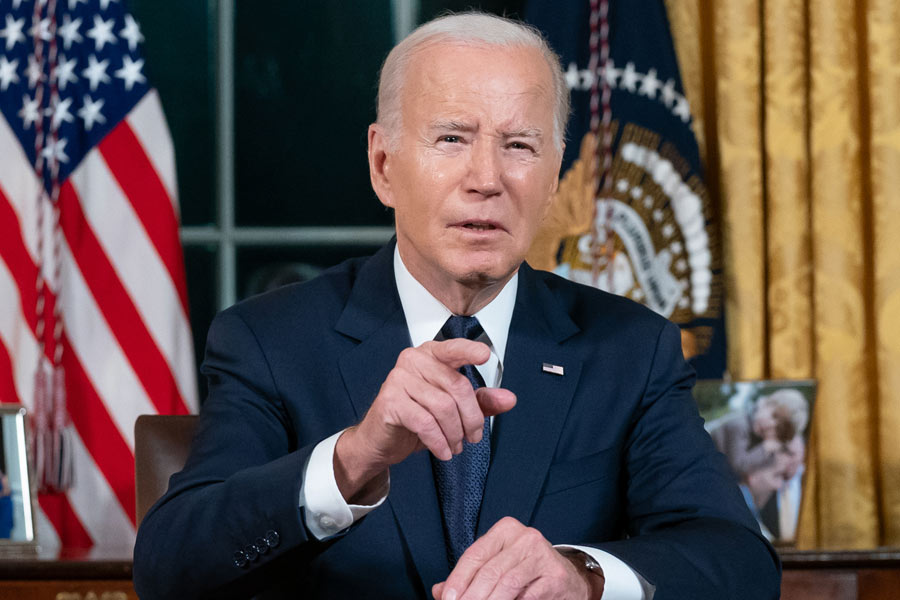Israel’s acceptance of the terms of a hostage deal with Hamas late on Tuesday reflected the intense pressure brought by the Biden administration to reach an agreement that would free some of those held by the armed group and produce potential longer-term opportunities to de-escalate the conflict.
The initial approval of the deal by the Israeli cabinet came after a “secret cell” of top aides to President Joe Biden worked furiously over the past several weeks on a web of negotiations involving Qatar, Egypt and Israel, an effort hampered by communications outages in the Gaza Strip and a series of last-minute disputes that derailed the talks.
White House officials, who spoke on condition of anonymity to discuss the five weeks of sensitive negotiations that had led to a deal, said the agreement would include the release of three Americans: two women and a toddler. The officials said they would continue to push for the release of all US hostages.
The deal came at a time when Democrats are increasingly divided over Biden’s embrace of Israel, particularly as the civilian toll in Gaza grows.
But the arrangement was also the latest example of the widening breach between the White House and Prime Minister Benjamin Netanyahu over Israel’s overwhelming response to the Hamas attacks, which has led to the deaths of about 12,000 people in Gaza. For weeks, Biden has publicly and privately tried to persuade the Prime Minister to pause the bombardment of Gaza to allow in humanitarian aid and to reduce civilian casualties.
Netanyahu has consistently refused to consider a wide-scale halt to Israel’s military operations in Gaza unless it would lead to the release of the hostages.
White House officials said that over the last several weeks, Biden had concluded that persuading Netanyahu to accept a dayslong suspension of the fighting — rather than more limited pauses for several hours at a time — would require linking the break to a deal to free hostages from captivity in the tunnels used by Hamas fighters.
Biden made that case with increasing urgency to Netanyahu during 13 calls since the Hamas attacks and a face-to-face meeting in Israel, officials said, underscoring the President’s willingness to ratchet up the pressure on his counterpart. Biden’s initial full-throated embrace of Israel’s right to defend itself in the hours after the October 7 attacks has evolved into repeated calls for restraint by the Israeli forces in Gaza.
Aides said the President was also hopeful that the hostage release could be an early step toward a broader peace in the region once the immediate crisis ends. In an opinion article published in The Washington Post on Sunday, Biden described how far his ambitions stretch beyond the four-day pause in fighting agreed to Tuesday.
“Our goal should not be simply to stop the war for today,” he wrote. “It should be to end the war forever, break the cycle of unceasing violence, and build something stronger in Gaza and across the Middle East so that history does not keep repeating itself.”
Biden and his top aides have repeatedly said they do not tell Israel how to respond to the slaughter of 1,200 people inside their country, and Netanyahu made it clear on Tuesday that he intended to resume military operations against Hamas as soon as the hostages were freed in accordance with the deal.
“The war will continue,” Netanyahu said.
But some senior American officials have signaled they would not be disappointed if the pause became a more permanent cease-fire. If the White House tries to use the hostage deal to press for a longer-term cease-fire and start moving towards the bigger questions about occupation and a two-state solution, that could put Biden on another collision course with Netanyahu when the fighting resume.
A top administration official, who briefed reporters Tuesday in the hours before the deal was finalized, said the pause in fighting was a step toward an eventual push for peace. But the official cautioned that such a possibility was a long way off.











